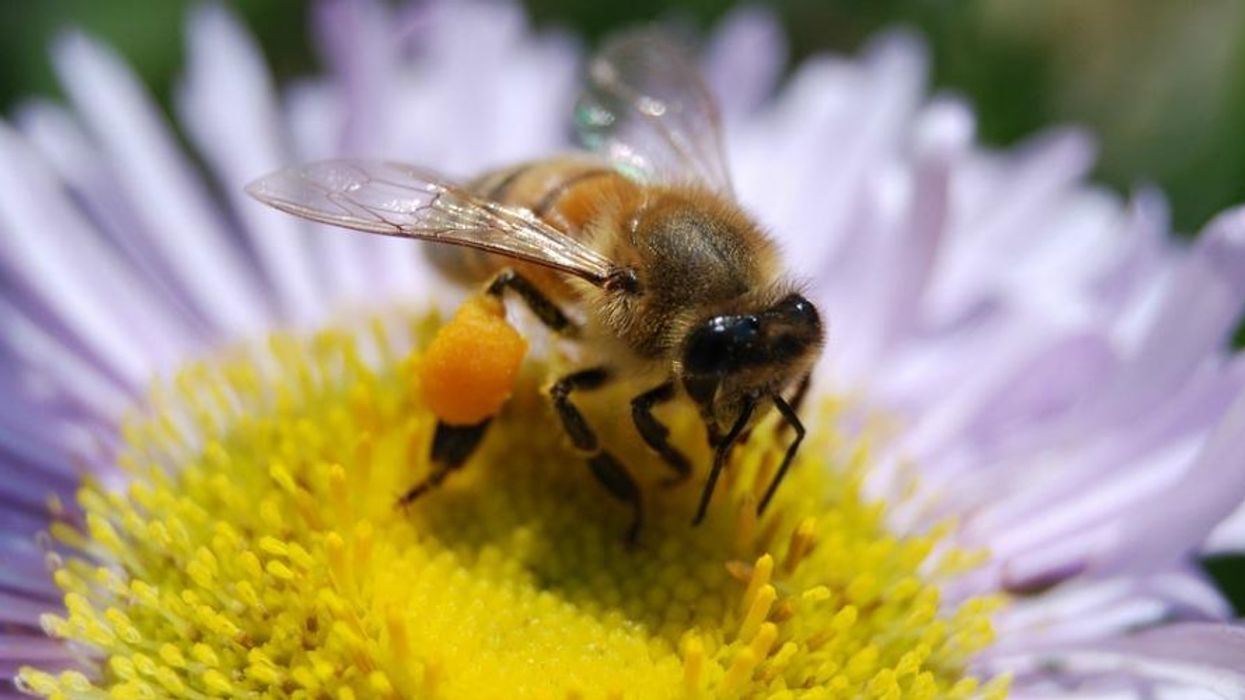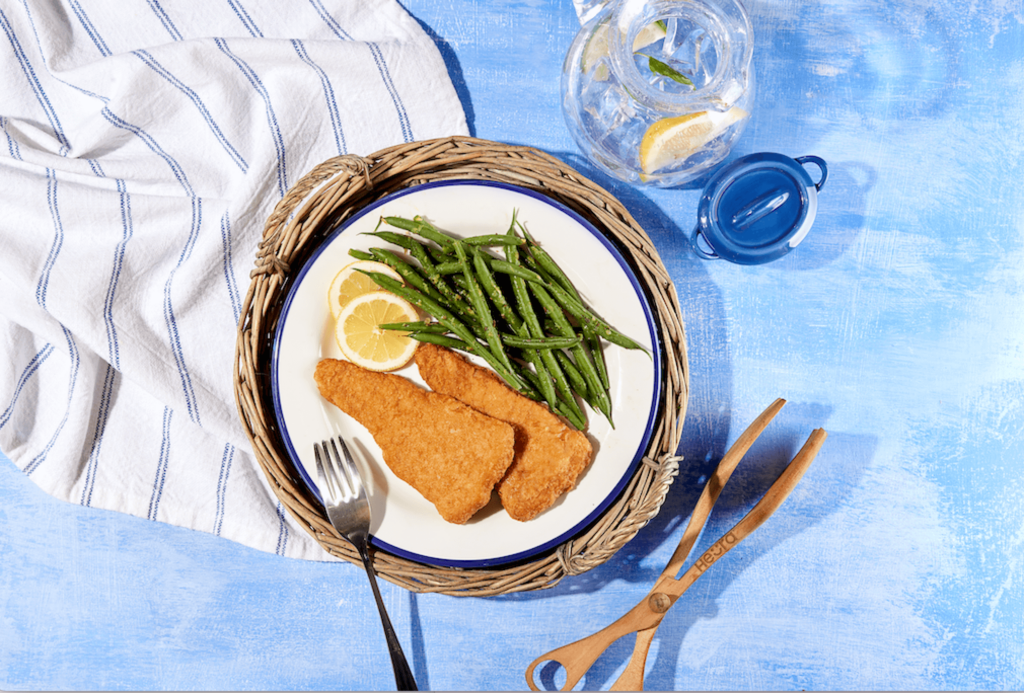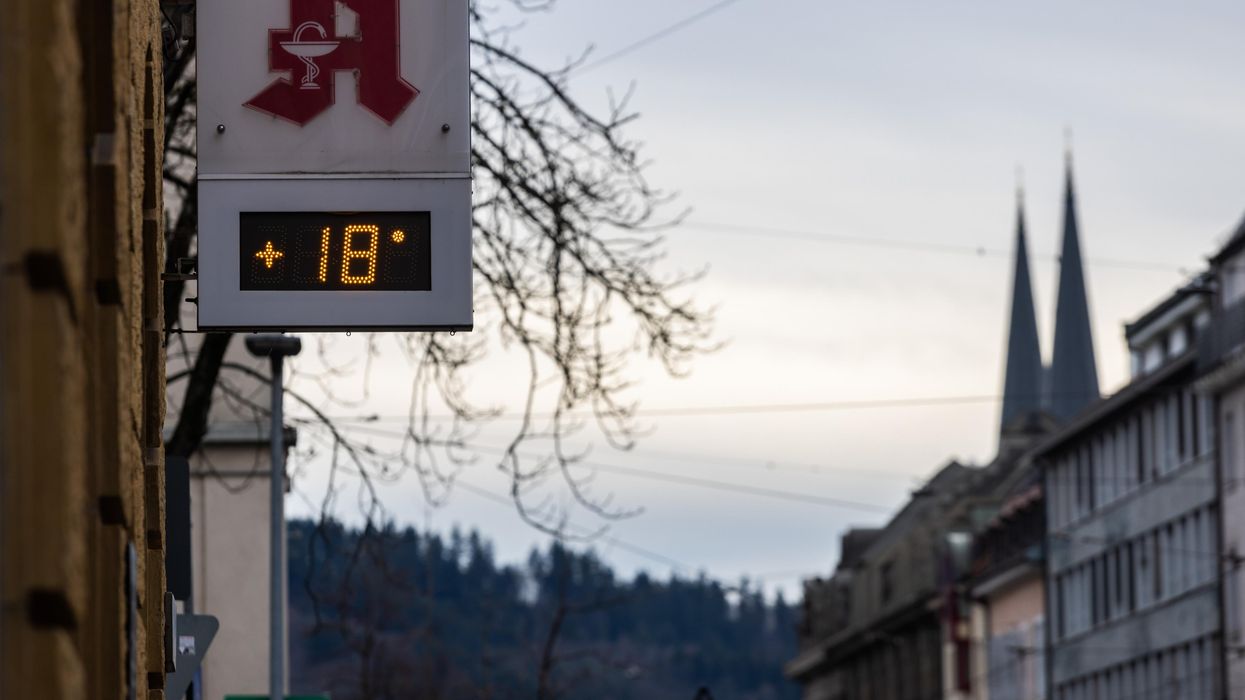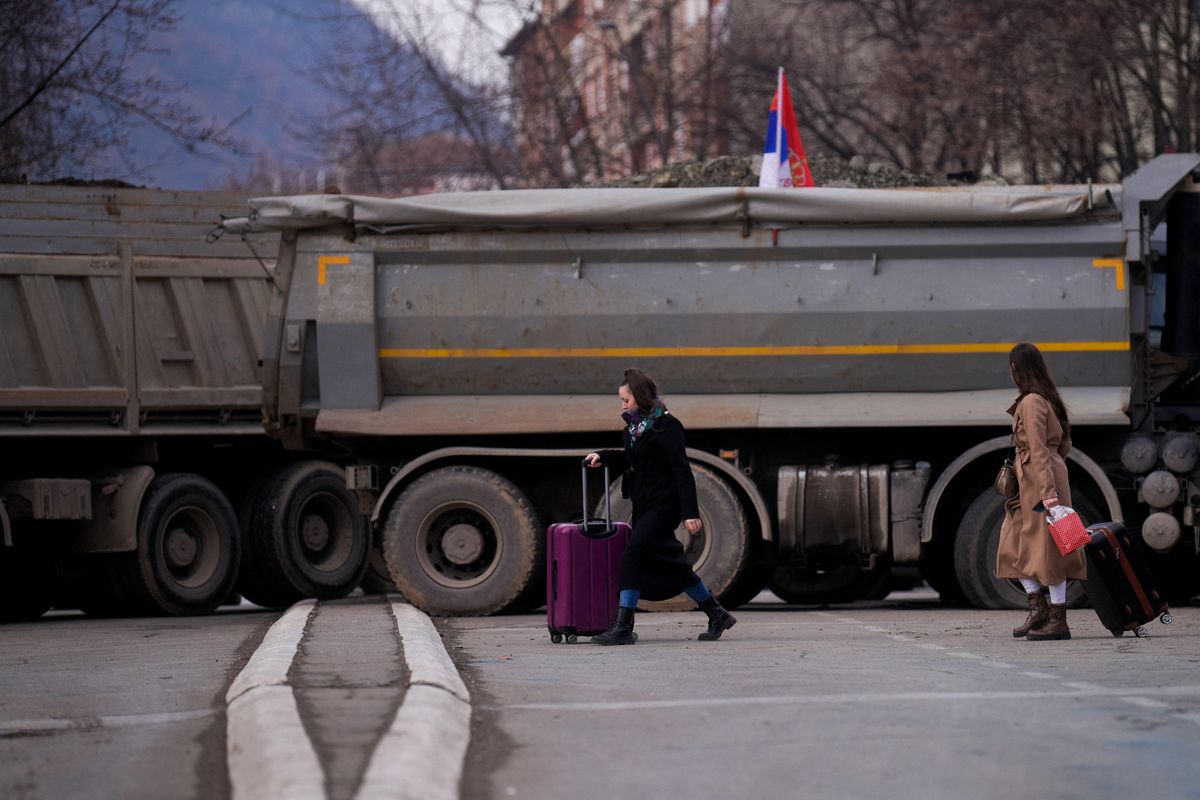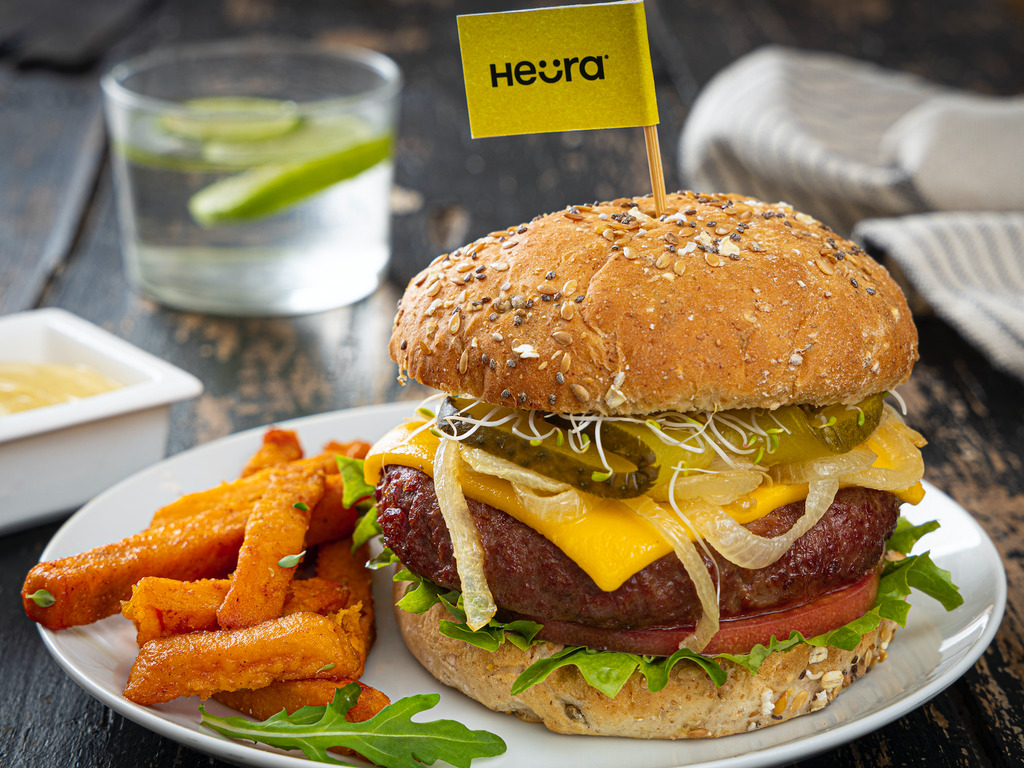Image Credit: WikiMedia Commons
This is part one of Biesterfeld’s TCF series: A Case for anti-war and anti-imperialist journalism
Read before you write
Once asked to explain his role as reporter preeminent investigative journalist I.F. Stone (1907-1989) answered: “To write the truth as I see it; to defend the weak against the strong; to fight for justice; to bring healing perspectives to bear on the terrible hates and fears of mankind, in the hope of some day bringing about a world in which man will enjoy the differences of the human garden instead of killing each other over them.”
Isidor “Izzy” Feinstein Stone was an unapologetic anti-war and anti-imperialist journalist, a rare breed of independent reporter, underrepresented in his time, and unheard of in today’s media wilderness.
Pulitzer Prize-winning reporter Seymour Hersh was a friend and protégé of Stone. In his memoir Reporter, Hersh gushes over what was Stone’s legendary MO: “Reading and reading and reading before writing.” When speaking to journalism students Hersh never tires of exhorting the next generation of ink-stained wretches to, “Read before you write!”
The current crop of Canadian journalists working in the establishment press apparently didn’t get Hersh’s memo, at least not those reporters covering international affairs and Canada’s foreign policy. Canadians who get their news mostly in the mainstream media are too often presented with more misinformation and omission than fact and evidence about Canada’s role and responsibility in the world. Biased coverage of Latin America, Russia, China, and the Middle East is stark evidence that Canadians won’t get to experience reliable public interest journalism for a long time at best.
This writing (presented in two parts) shines a critical light on the derelict performance of Canada’s fourth estate in its coverage of foreign affairs. The aim is to impel succeeding generations to reject the unreliable reportage demonstrated by their forerunners who have been committing, what amounts to journalism fraud.
A disquieting case in point is reporting in the Canadian establishment press of the Ukraine-Russia war.
A tsunami of manipulated jingoism
“The lack of objective, principled coverage of the war in Ukraine is a degenerate state of affairs. The one thing worse is the extent to which it’s perfectly fine with most Americans.” Patrick Lawrence Consortium News April 5, 2022
The Nation foreign affairs columnist Patrick Lawrence might have included Canadian news consumers in his assessment. Canadian war reporting coming out of Ukraine shows that the reliability gap between independent and establishment journalism has grown to a foreboding, democracy-threatening divide. The information wars over whose facts about the Ukraine-Russia conflict can be trusted are fierce and, often sensational.
Case in point: The heroes of Snake Island.
Globe and Mail headline, Feb. 25, 2022: “Final moments of Ukrainian border guards’ fierce stand on Snake Island against Russian war ship become rallying cry.”
Canadian news outlets reported as fact Ukrainian President Volodymyr Zelensky’s claim that 13 border patrol officers died heroically after refusing to surrender the contested outpost in the Black Sea.
Days later the Ukrainian navy confirmed the Russian version of events that Ukrainian soldiers on the island had surrendered, were taken prisoner and were not killed. Global News, the Globe and Mail and others published an update saying it was Zelensky’s mistake, but left posted on their news sites the initial story of the fictional heroic last stand and Zelensky awarding posthumous medals of honor to the fallen heroes who turned out to be alive.
A CBC News headline for an Associated Press (AP) wire story dated March 25, 2022 reads: “300 died in last week’s airstrike on theatre in Mariupol, city government says.”
Canadian MSM reporting follows the pack and like CNN and BBC relies on a single source but provides no evidence for the alleged Russian atrocity. “The bloodshed at the theatre fuelled allegations Moscow is committing war crimes by killing civilians.” The National’s Susan Ormiston repeats the claim and cites ‘local officials’ as her source.
Donbass-based media, Russian media, and international independent reporters (Alina Lipp, Eva Bartlett, Patrick Lancaster and others) interviewed locals in Mariupol who testified that Ukrainian Azov fighters used civilians as human shields inside the drama theatre and detonated parts of it when they were forced to retreat. “No, nothing landed on it, it exploded from the inside, just dynamite or whatever,” said one eye witness interviewed by independent multi-language news site Donbass Insider.
It turns out that in spite of the alleged Russian “rocket strike’ that reduced the drama theatre to rubble, nobody was killed.
“It’s a miracle – civilians that were hiding in a basement at the Drama Theater in Mariupol survived the air strike,” tweeted Illia Ponomarenko, defense reporter for the Kyiv Independent one of several Ukrainian media outlets funded by NATO and Global Affairs Canada.
The initial AP story including false claims that Russian artillery killed 300 Ukrainian civilians huddled in a Mariupol theatre remains posted on CBC’s and other Canadian news sites without correction.
“I’ve never seen coverage so utterly consumed by a tsunami of manipulated jingoism as this one.” Esteemed Australian journalist and documentary filmmaker John Pilger told the China Morning Post in an interview that Ukraine war reporting in the legacy press is not to be trusted.
“Nothing should be trusted unless you’re going to sit in front of your television and deconstruct what you see, actually take it away with you and check it and try to verify it as much as you can and if you can’t, to discard it.”
When grizzly atrocities attributed to Russian troops in the Kyiv suburb of Bucha dominated the news last April, the contradictory narratives coming out of corporate news rooms versus independent reporting describe two different realities. But only one side of the narrative received attention in the Canadian corporate press.
The Toronto Star headline on April 3, 2022, “Ukraine accuses Russia of massacre, city strewn with bodies,” sets up the AP wire story by Oleksandr Stashevskyi and Nebi Qena who provide indelible details of alleged murders, execution style, by Russian soldiers of civilians in Bucha:
“Bodies with bound hands, close-range gunshot wounds and signs of torture lay scattered in a city on the outskirts of Kyiv after Russian soldiers withdrew from the area. Ukrainian authorities accused the departing forces on Sunday of committing war crimes and leaving behind a ‘scene from a horror movie.’”
The caption under Margaret Evans’ April 4, 2022, TV report for CBC’s flagship news program, The National, reads, ‘Ukrainian President Volodymyr Zelensky toured the carnage left behind by Russian troops in the northern Kyiv suburb of Bucha on Monday’.
The Star editorial board in an op-ed on the same day: “This is the fresh hell the Russians visited upon Bucha — and quite possibly on other cities throughout the country. This is not war. This is a war crime. Or, rather, these are war crimes, plural, exclamation point. Crimes against humanity. Genocide. And the perpetrators must be brought to account.”
In a report for independent news site SheerPost Patrick Lawrence admonishes sole source reporting: “Ukrainian officials say,” “according to Ukrainian officials,” “senior Ukrainian officers said,” “Ukrainian troops reported,” “the Ukrainian mayor said in an interview,”“police officers say,” given whatever these sources say or report or assert is played back to readers and viewers as factually so.”
Bucha Timeline:
On March 29, 2022, Russian and Ukrainian negotiators were in peace talks presided over by Turkish president Erdoğan in Istanbul. The Guardian reported at the time that Russia had agreed to “radically reduce military activity in the direction of Kyiv and Chernihiv”. Which Russia proceeded to do on March 30, 2022, withdrawing its troops, and evacuating areas near the Ukrainian capital including the suburb of Bucha.
On March 31, 2022, Bucha mayor Anatolii Fedoruk recorded a widely publicized video message in which he cheerfully announced the Russian withdrawal: “March 31st will go down in the history of our settlement and the entire territorial community as the day of the liberation of our settlements from the Russian ‘orcs’, from the Russian occupiers by our armed forces of Ukraine.”
Mayor Fedoruk confirmed that the Russians had left Bucha but said nothing about murdered civilians in the streets. On the same day, according to the Russian embassy This is part one of Biesterfeld’s TCF series: A Case for anti-war and anti-imperialist journalism
Zhan Beleniuk, a member of the Ukrainian Parliament visited Bucha and posted photos of its streets on his social media pages. Beleniuk also made no mention of executed corpses in the streets.
Russian troops had abandoned Bucha on March 30, but videos of atrocities did not start appearing on social media until April 3, four days later.
The main source of what happened in Bucha is a video recorded by Ukrainian National Police published along with some photos on April 2, 2022, three days after Russian troops had withdrawn from Bucha. The video shows a Ukrainian convoy driving down a main street in Bucha slaloming around a dozen or more corpses, evidently civilians. Some of the bodies have their hands bound behind their backs, some are wearing white arm bands designating support for the Russian military.
The Russian embassy press office commented to The Canada Files: “We declare conclusively that the photographs and video footage published by the Ukrainian Government attesting to various alleged ‘crimes’ by Russian military personnel in Bucha are a staged provocation and have nothing to do with reality. We are not surprised that all the so-called evidence of Russian ‘war crimes’ in Bucha appeared a few days after this mopping-up operation when Ukrainian Security Service officers and representatives of Ukrainian television arrived in the town.”
Western media including Canadian reporters expressed no skepticism of even the vilest claims coming from official sources such as Ukrainian Minister for Foreign Affairs, Dmytro Kuleba and Ukraine’s former human rights commissioner Lyudmyla Denisova.
Denisova claimed that “About 25 girls and women aged 14 to 24 were systematically raped during the occupation in the basement of one house in Bucha. Nine of them are pregnant.”
Elizabeth Rinzetti quotes Denisova in an April 4, 2022, opinion piece for the Globe and Mail. “Russian soldiers told them they would rape them to the point where they wouldn’t want sexual contact with any man, to prevent them from having Ukrainian children.”
Denisova made other claims to the international press about atrocities and perversions committed by Russian troops that are so depraved they strained plausibility and with it Denisova’s credibility, even with Ukrainian media.
When asked about her Russian rape and war crimes allegations in an interview with Ukraine News on Svoboda radio, Denisova said, “Yes, this vocabulary was very cruel, we discussed it (with the media). I said that, indeed, maybe I exaggerated. But I tried to achieve the goal of persuading the world to provide weapons and pressure Russia.”
At President Zelensky’s request, an early end to Denisova’s tenure was put up for a vote to the Ukrainian Parliament, whose members voted her fired by a significant majority. Ukrainian media reported Denisova was being held accountable for failing to help organize humanitarian corridors, for failing to manage security issues in her department and finally: ‘she had not shown enough effort to find facts proving war crimes committed by Russian troops in Ukraine.’
UK reporter Vanessa Beeley’s in-depth interview with former Swiss intelligence officer Jacques Baud brings context and nuanced analysis absent from much of MSM coverage on Ukraine.
“We do not know the whole truth about the Bucha massacre,” says Baud, “but the available evidence supports the hypothesis that Ukraine staged the event to cover up its own crimes. By keeping these crimes quiet, our media have been complicit with them and have created a sense of impunity that has encouraged the Ukrainians to commit further crimes.”
However, Bucha narratives that run counter to official Kyiv talking points have not been presented to mainstream news audiences in Canada. The flawed news, fake news if you like, of Bucha atrocities supposedly committed by Russian soldiers, remains posted on Canadian news sites as a one-sided and unsettling rough first draft of history.
Disinformation warfare
“Let’s imagine that the war dragged on and negative news dominates the positive. We simply do not notice this influence anymore and imperceptibly degrade ourselves emotionally. It is enough for the communicator to make us believe that everything is bad. Then, our brain itself will begin to distort reality.” Dmytro Kuleba – War for Reality – How to Win in the World of Fakes, Truths and Communities (2019).
Ukrainian foreign affairs minister Kuleba is a communications specialist in disinformation warfare. He made some of the grizzly photos of the ‘Bucha massacre’ available to international media on his ministry web site. According to the cover blurb of his 2019 best seller, Kuleba “is a warrior in ‘hybrid war’ in the informational space between Russia and Ukraine. Dmytro Kuleba explains how not to lose a sense of reality when fakes have mixed with the truth, and the communication war has become no less fierce than the physical one.”
War for Reality is a hefty instruction manual weighing in at 350 pages of guidance for the masses. Kuleba writes: “These are instructions that might help win in this and other information and communication wars: rely on reality, think critically, manage emotions, feel the community and interact with the state.”
Kuleba who sits on the national defense and security council of Ukraine frequently co-issues joint statements with the defense minister to give shape to official narratives about the war, and about Russia.
For example, a January 2023 joint communiqué “Regarding the urgency of strengthening Ukraine’s defence capabilities”, a weapons request to the international community, presents familiar talking points that have made their way into Canadian MSM ‘reportage’:
“We urge you to do this for the sake of your own citizens, who demand that the terrorist state be stopped so that the crimes it commits do not come to their land and in their homes.
Russia’s criminal war of aggression against Ukraine, which has been waged for almost a year, remains the most serious threat to the international security and the single unprecedented challenge to the international community since World War II.
This war poses a particularly acute danger for the Euro-Atlantic community considering Russia’s overt goals to destroy the European security order and undermine viability of democracy as a form of social life.”
The language of official Ukrainian declarations and assertions about the war inevitably find their way into Canadian news reports unchallenged, uninvestigated and cited as fact.
Some examples:
“Vladimir Putin’s Russia is a terrorist state — Canada should say so” exhorts a National Post October headline.
In November 2022, the European Parliament and NATO both declared Russia a state sponsor of terrorism. The NATO Parliamentary Assembly’s resolution, “to state clearly that the Russian state under the current regime is a terrorist one,” received approval from a delegation of Canadian MPs and senators who voted in favour.
Allan Woods writes in the Toronto Star: “The toxic ‘terrorist’ label, which has no agreed-upon definition in international law, serves nevertheless as a symbolic rebuke to any existing claims Russia makes to being a respected and law-abiding member of the international community.” (Nov.25, 2022)
(Sidebar: In February 2023, Canada’s Parliament unanimously voted to list the Wagner Group, a Russian private military contractor, as a terrorist entity.)
Ukraine’s official position that the war started unprovoked in February 2022 is historically flawed, but echoed resoundingly by Ukraine’s allies including by Canadian officials such as defense minister Anita Anand, Global Affairs minister Melanie Joly and deputy PM Chrystia Freeland.
Anand expresses her concern to CTV News over the Ukraine war spilling into a NATO country after a missile strike on Poland on November 15, 2022 which was later confirmed to have come from Ukraine air defenses:
“I remain concerned, as I have been since February 24, when Russia illegally and unjustifiably invaded a sovereign democratic country.”
Documented facts surrounding the beginnings and recent history of the Ukraine war are not acknowledged by the Canadian government hence historical accuracies are not making their way into MSM press coverage.
When Anand, prime minister Trudeau and other Canadian officials talk about the war they inevitably reference “Russia’s unjustifiable and unprovoked invasion” of February 2022. MSM in Canada simply swallow and repeat and relegate to the memory hole critical history of the conflict.
The Canadian press didn’t critically cover the US-managed regime change in Ukraine via the 2014 Maidan coup which violently toppled elected president Viktor Yanukovych. MSM narratives on the Maidan protest are about the Yanukovych government killing pro-European Union protestors in the streets with the help of Russian provocateurs. Whereas, independent reporters and academic observers arrived at a disturbingly different conclusion.
University of Ottawa political studies professor Ivan Katchanovski’s academic deconstruction of what happened inside Kyiv Independence square on February 20, 2014 shows that extreme nationalist elements inside Euromaidan protestors co-ordinated the violence for unthinkable political reasons. “Two leaders of the far-right Svoboda party stated in separate interviews that a Western government representative told them and other Maidan leaders a few weeks before the massacre that Western governments would stop recognizing Yanukovych after casualties among protesters reached 100,” writes Katchanovski.
Titled, The “Snipers’ Massacre” on the Maidan in Ukraine, Katchanovski first presented his study at the Annual Meeting of American Political Science Association in San Francisco in 2015. The 80-page forensic analysis has received no attention from the Canadian press even though it contains irrefutable video and audio data on who did the shooting and who ordered it.
The failure of establishment reporters to connect the dots, even when handed a smoking gun of the heavy hand of US-led regime change, continues to eviscerate the public’s right to know.
Robert Parry in a 2019 report for Consortium News writes, “In the upside-down world that has become the U.S. news media, the democratically elected president was a dictator and the coup makers who overthrew the popularly chosen leader were “pro-democracy” activists.”
The belligerent nationalism of Euromaidan found its way to other parts of Eastern Ukraine including the port of Odessa where anti-Maidan, pro-Russian demonstrators set up a protest camp of tents and barricades in the historical city centre, in opposition to the Euromaidan. Demonstrators demanded regional autonomy for the eastern regions, protection of the Russian language and historical heritage.
On May 2, 2014, a Euromaidan mob descended on the camp with violence. Maidan thugs threw Molotov cocktails, set tents and barricades on fire and drove a large contingent of the pro-Russian crowd into the nearby Trade Unions House. According to eye witnesses who spoke to Russia Today, “The attackers continued to hurl cocktail bombs filled with a home-made napalm mixture consisting of gasoline, acetone, and Styrofoam at the building.” Trapped protestors had called the fire brigade, but no one came. A handful of policemen watched the proceedings but did nothing. Reported by RT (and other media) : “A total of 48 people died. Eight people jumped from the building to their deaths, while others suffocated or died from burns. All were citizens of Ukraine. A total of 247 people requested medical help following the incident, of whom 27 had been wounded by gunfire.” Collective amnesia by MSM Canada about the grisly events now known as the Odessa massacre has erased from history one of the root causes that led to the present conflict.
Joe Lauria, Consortium News: “This event became the trigger for the uprising in the Donbass,”. Eight days after the Odessa massacre, coup resisters in the far eastern provinces of Donetsk (DPR) and Lugansk (LPR), bordering on Russia, voted in a referendum to become independent from Ukraine. The U.S.-backed coup government then launched a military attack against the breakaway provinces, which continued for nearly eight years, killing thousands of people before prompting Russian intervention in the civil conflict.”
Russia did not recognize the independence of the DPR and LPR until Feb. 21, 2022, three days before its intervention which had been requested by the region years earlier.
Establishment think tank The International Crisis Group reports: “The armed conflict in Eastern Ukraine started in 2014. Between then and early 2022, it had already killed over 14,000 people.”
This recent history and context go largely unreported in MSM news and seldom reaches mainstream audiences. However, local and international independents have been covering and continue to document, what amounts to an eight-year civil war in the Donbas. Reporting from Donetsk and Luhansk by Vanessa Beeley, Patrick Lancaster, Alina Lipp, Thomas Roeper, Eva Bartlett and many others, has contradicted official narratives and discredited MSM transcriptions.
In October 2019, Canadian independent journalist Eva Bartlett filed one of many comprehensive front-line reports collected from local eye witnesses for Mintpress. An excerpt:
“We stopped in Zaitsevo town center, 800 meters from an NW front-line, and 1.5 km from the northern front-line.
There, we spoke to Irina Dikun, head of the administration of Zaitsevo and, as it turns out, a remarkably courageous woman. She told me:
‘Here, we are not living, we’re surviving. Those who could leave, have left. Those who remain are mostly elderly. The shelling began in 2014 and hasn’t stopped till now. Six years of constant shelling. This morning at 6 a.m. there was a big blast [a 120 mm mortar (prohibited under Minsk) on a street where civilians still live, I later learn].
I asked her whether she had a message for Western governments supporting Ukraine’s war on Donbass:
‘I want them to open their eyes and see there is no Russian invasion here. Just local, normal, peaceful, people who wanted to live another way. And we were not afraid to tell everybody how we want to live. In the beginning, we didn’t want to make a Republic; we just wanted to be autonomous. But we were not listened to. Ukraine moved its armed forces against the people and used their artillery against us.
I want Western leaders to open their eyes and see this. Western weapons are used to kill us. We don’t wish for any person to live through what we are living here now. What is here is something you don’t wish for your enemy.’”
For her reporting Bartlett ended up on an official Ukrainian ‘hit list’ posted on a website launched in December 2014 by former governor of Luhansk Oblast Georgy Tuka. The Myrotvorets or Peacemaker site lists people “whose actions have signs of crimes against the national security of Ukraine, peace, human security, and the international law”. When people on the list have died, the list is updated with a bold X struck through the profile image of the individual.
Bartlett like many independents is given no love by establishment reporters. CBC’s Justin Ling posted a smear-piece on Bartlett in July 2022 claiming, “When it comes to pushing propaganda about the war in Ukraine, Russian President Vladimir Putin has help from a group of Westerners with long histories of peddling disinformation, including Canadian Eva Bartlett.”
Dissident facts and other counternarratives around the war are not sitting well with senior political decision-makers and their stenographers. Ling is not the only establishment journalist making false claims about independent news outlets on behalf of the security establishment.
A December 2019 Global News headline states: “Canadian eyes only intelligence reports say Canadian leaders attacked in cyber campaigns.” One of the alleged ‘attacks’ reporter Sam Cooper references in his online report is a 2017 story published by independent US news organization Consortium News (CN) is titled, A Nazi skeleton in the family closet, about Chrystia Freeland’s grandfather.
Cooper reports: “The cyber-campaign directed by Russia involved distortions of facts and was timed, targeted and, according to the CSE (Canadian Communications Security Establishment) – Canada’s NSA, pushed the narrative to suggest that Freeland’s family immigrated to Canada as part of a wave of Nazi-collaborators. The first attack was a February 2017 report in the ‘online Consortium News’ followed ‘in quick succession’ by pro-Russian English language and Russian-language online media, the CSE report says.”
Apparently Cooper did not verify CSE claims with anybody at Consortium News who proceeded to sue Global for defamation. The suit accuses “the Corus Entertainment-owned network of entering into a business conspiracy with the Canadian Communications Security Establishment (CSE)” to “Link critics of Deputy Prime Minister Chrystia Freeland to Russia as a way of discrediting those critics and protecting themselves.”
Filed against both CSE and Corus the suit reads in part: “Global received the storyline from CSE and then consciously regurgitated the preconceived narrative that it knew to be false. In its quest to paint Plaintiff as a ‘Russian collaborator’, Global abandoned journalistic integrity and ethics, misrepresented the content of CN’s articles, and applied false labels to Plaintiff.” Citing case law, the suit filed in January, 2020, states that “a clear evasion from the truth and the failure to interview an important witness, who was easily accessible, supports a finding of actual malice.”
CSE did not respond to the notice. Global News refused to apologize or retract all mention of Consortium News from the article which is still on line. The story of an American news organization filing a defamation law suit against a Canadian news outlet apparently failed to tweak the interest of the establishment press and remains unknown to Canadian news audiences.
When asked to point to evidence that connects Consortium News to Russia, Cooper emailed The Canada Files, without comment, a link to the “Russian Asset Tracker” page of OCCRP (Organized Crime and Corruption Project) an investigative reporting platform for journalists. The site publishes “the global assets of Russia’s oligarchs and enablers.” On a list of oligarchs allegedly connected to Putin none is presented as having a connection to Consortium News. Sam Cooper hasn’t responded to requests for clarification.
As reported previously by The Canada Files, Cooper has committed other high profile errors.
When emailed the same request for evidence a CSE media officer responded to Canada Files, “CSE’s threat coverage and analysis is based upon classified and unclassified sources. We do not have any further unclassified information to point you to regarding this topic.”
The most recent journalism fail perpetrated by MSM Canada on Ukraine war coverage is the deafening media silence on Seymour Hersh’s in-depth report in Substack published February 8, How America Took Out The Nord Stream Pipeline.
The bombshell revelations published by Pulitzer Prize winner Hersh have received scant if any attention from the Canadian establishment press. The Globe and Mail did publish an opinion piece calling for a “proper investigation” of what happened at the bottom of the Baltic Sea on September 26, 2022.
Hersh writes: “Biden’s decision to sabotage the pipelines came after more than nine months of highly secret back and forth debate inside Washington’s national security community about how to best achieve that goal. For much of that time, the issue was not whether to do the mission, but how to get it done with no overt clue as to who was responsible.”
Citing an anonymous Washington source who was in on the planning of the sabotage with assistance from Norway, Hersh unpacks a tale that implicates the same players close to the Maidan coup, the team suspected of running the US proxy war in Ukraine: Under Secretary of State Victoria Nuland, Secretary of State Anthony Blinken, and Jake Sullivan, National Security Advisor to President Joe Biden.
“I simply deconstructed the obvious,” Hersh tells a radio interviewer, likely referring to the trail of comments left by the major players including president Joe Biden about Nord Stream.
According to Blinken, the Nord Stream pipeline bombing “offers tremendous strategic opportunity for the years to come.”
Victoria Nuland told a Senate hearing, “Senator Cruz, like you, I am, and I think the administration is, very gratified to know that Nord Stream 2 is now, as you like to say, a hunk of metal at the bottom of the sea.”
Biden said in a press conference, “If Russia invades, that means tanks or troops crossing the border of Ukraine, then there will be no longer a Nord Stream 2. We will bring an end to it”
Europe is dark and cold this winter because of an American act of war against a European ally, yet, no front-page reporting in the legacy press.
The Canada Files put the question to Brodie Fenlon, CBC’s Editor-In-Chief and Executive Director of Programs & Standards a week ago: “In what journalistic universe is this act of war perpetrated by the US on one of its fellow NATO members, Germany, not newsworthy?” Fenlon has yet to respond.
“The war I know is not the war you’re reading about,” Hersh told Amy Goodman host of Democracy Now. To his Substack readers Hersh wrote, “Stay tuned. We are only on first base.”
The Disinformation Industrial Complex
The climate of concern over how to counter so-called “Russian disinformation” has fostered a veritable disinformation industrial complex, including a number of government- funded research initiatives.
As a result of disinformation research some reporters in the alternative press who have committing fact-based journalism and published unapproved narratives about the Ukraine conflict have found themselves targeted by the Canadian security establishment for ‘promoting Russian narratives.’
‘Canada target of Russian disinformation campaign with tweets linked to foreign powers’, reads the ominous headline in the National Post. The Canadian Press story by Marie Woolf is splashed across news sites including the Globe and Mail, Global News, the Toronto Star, CTV and others.
The source for the story is a University of Calgary study. The School of Public Policy’s eight-page briefing document is titled ‘Disinformation and Russia-Ukrainian War on Canadian Social Media.’ Lead professor Jean-Cristophe Boucher explains that a ‘community detection algorithm’ was used for the study ‘to identify main influencers’ and found that in “the Canadian Twitter ecosystem” 25 per cent of the accounts were promoting pro-Russian narratives.
Topping Boucher’s list of alleged Russian influencers are some of the most reliable journalists working in the alternative press today, including Aaron Maté and Max Blumenthal, award-winning reporters with The Grayzone, an independent news site based in Washington. Geopolitical Economy Report editor Ben Norton, Intercept founder Glenn Greenwald who published whistleblower Edward Snowden’s NSA surveillance leaks and John Pilger, a Julian Assange supporter, are also on the list of ‘pro-Russian accounts.’
It’s no surprise that Boucher’s report fingers whistleblower org WikiLeaks as a Russian-influenced account as well. But nowhere does the University of Calgary study cite evidence that connects any of the journalists on its list to Russia or to any Russian organizations. Nor does Marie Woolf’s CP story.
Every war in the past 50 years is a result of media lies – Julian Assange, WikiLeaks founder
At the 2022 Collision tech conference in Toronto, Canada, guest speakers Max Blumenthal and Aaron Maté appeared in front of an audience filled with members of the establishment press “to explain how the mainstream media is the most prolific source of disinformation on the planet.”
Blumenthal and Maté claim establishment journalists “work closely with the national security state to cultivate public support for war while deflecting scrutiny from the oligarchy that controls it.”
CGTN America anchor Elaine Reyes, the event facilitator, asked the two award winning journalists a closing question, ‘What is the role of social media in promoting fake news in the future?
Maté’s response: “Obviously there are problems with social media and it’s very easy for fake stories to spread. But I’m most concerned with the fake stories that kill people, that kill children around the world based on lies that lead us to war and justify murderous sanctions that cripple entire economies.”
For more on the unreliability of Canada’s establishment press and the urgent need for anti-war and anti-imperialist journalism that cuts through the media misinformation wilderness please visit this space for Part Two.
Editor’s note: The Canada Files is the country’s only news outlet focused on Canadian foreign policy. We’ve provided critical investigations & hard-hitting analysis on Canadian foreign policy since 2019, and need your support. The Canada Files has just begun a fundraising campaign!
$4000 CAD per month is TCF’s goal for this fundraising campaign, up from $1407 CAD per month in support at present.
Please consider setting up a monthly or annual donation through Donorbox.
More Articles
